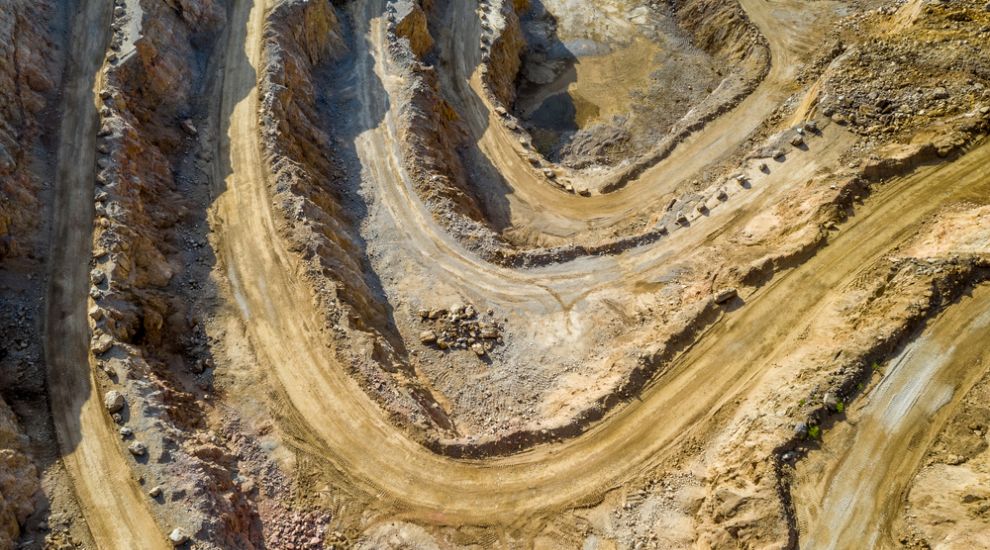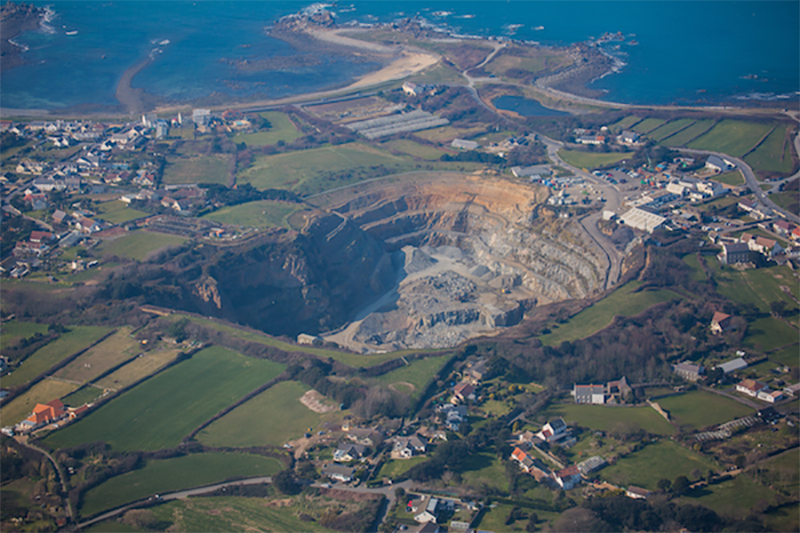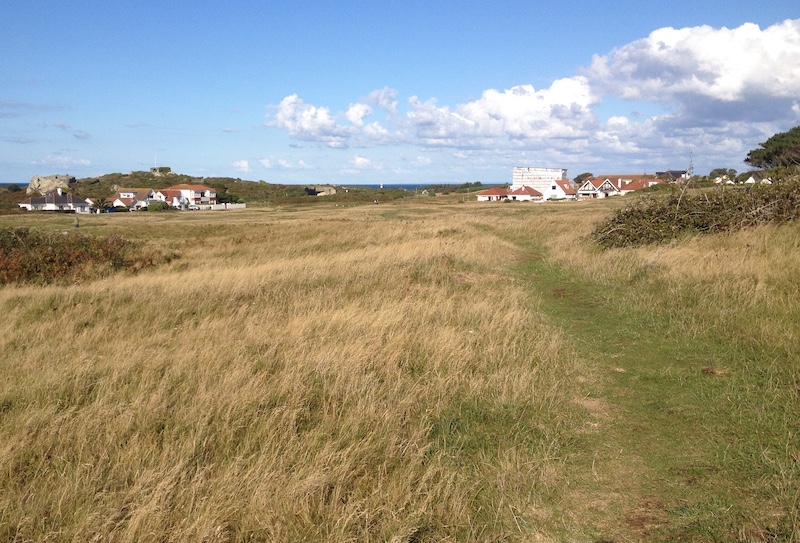


The application for Guernsey’s biggest industrial project in decades has been given the go ahead.
A new quarry will be established at Chouet headland by Ronez and operate for at least ten years following unanimous approval from members of the Development & Planning Authority at an Open Planning Meeting yesterday.
Members of the DPA added a further five conditions to the application following spoken representations from the public and responses from planning officials before voting in favour.
During the planning process, nine representations were received from stakeholders and members of the public. Four representors and two representatives of Ronez chose to speak publicly at the meeting.
You can read a detailed report on the plans and the history of the site HERE.
The DPA asked that five additional conditions were added to the application, alongside 35 others already agreed between the Planning Service, Ronez and several other stakeholders such as Traffic & Highways and Environmental Health:

Pictured: Les Vardes will be gradually wound down over the coming years, leaving Chouet as the only operational quarry.
One representor labelled the planning report a “professional document” but criticised what he saw as a lack of detail from Ronez about biodiversity loss and the planting schemes. He labelled the absence “worrying and surprising”.
He added: “There is unlikely to be an industrial development of this size… for many years, or ever”.
He called for both these schemes to be published within a reasonable time should the application be approved.
The owner of Roc Salt noted that there has been a café or restaurant at Chouet for over 50 years, and the new quarry would be detrimental to his business, potentially rendering it unviable.
He asked for blasting to only occur on Mondays, with no heavy operations on weekends.
He also thanked Ronez for agreeing to undertake structural surveys of all surrounding monuments and properties every two years even though it is not predicted there will be consequences as a result of quarrying activities.
Dust management and noise pollution was also a prominent concern.
One representor argued that a windy headland site would see carcinogenic dust and noise freely carried across the Common in variable gusts. She called for severe penalties for non-confirmation with pollution limits and that operations are limited on weekends.
“Our weekends must be protected,” she said.
Another noted that similar plans were rejected 30-years ago on health and environmental grounds, and that any quarrying would turn “the north’s only green space into a health hazard”.
“Dust is a known carcinogen… cancer is the number one cause of death in the Channel Islands,” he added.

Pictured: Recreation on the Common and beaches surrounding the headland were in the thoughts of those making representations.
Mike Osbourne, Managing Director of Ronez, said the firm has a “responsibility to support the economy” but it has to “earn a license to operate”.
He noted the company’s “unblemished track record of compliance at Les Vardes”, and suggested that independent jurisdiction should seek to be self-sufficient wherever possible in the current geopolitical situation.
He added that limiting blasting to only Mondays would be difficut due to variable operational considerations. Usually no blasting, processing, or extracting occurs at its quarries on Saturdays.
There would be approximately five to six hours’ worth of stone crushing per day between Mondays and Fridays.
An environmental consultant said with mitigation the consequences are expected to be small and within prescribed safety and comfort limits.
Quarrying would not lead to “unacceptable effects”, adding that any vibration pollution would be “much lower” than dangerous limits.
Summary about the approval of the Chouet quarrying application, thanks to everyone who commented and made a representation and the importance of community getting involved in the planning process. pic.twitter.com/tQ79FjmIca
— Sasha Kazantseva-Miller (@sashakmiller) October 17, 2022
Pictured: Deputy Sasha Kazantseva-Miller shared her thoughts on social media after the meeting.
Deputy John Dyke asked if the screening mound and associated planting would be undertaken early on to improve the visual profile for those nearby. The planning service confirmed it would after soil had been scraped from the surface.
Deputy Sasha Kazantseva-Miller sought assurances that the machinery could be lowered down or obscured, and for multiple dust measuring points to be installed. This was agreed by officials and added as a condition.
Concerns were also raised by members about the level of detail in some of the environmental schemes attached to the application.
Jim Rowles, Director of Planning, said it was “entirely reasonable” for a project of this size to publish the landscaping and biodiversity schemes. He also said Ronez had previously given assurances that HGVs would only use main roads when transferring materials between Chouet and Les Vardes.
Mr Rowles said opening the quarry without its own rock crusher would deem the venture unviable and would demand the use of extra specialist heavy vehicles which would further add traffic and pollution to the roads.
Deputy Bob Murray thought there was still “considerable mistrust in some of the mitigations” and questioned how they could be enforced and what penalties could be applied.
Mr Rowles suggested those factors were for other bodies to oversee rather than Planning.
Deputy Victoria Oliver, President of the DPA, said the meeting was not about the principle of whether Guernsey should quarry there, but about how the impacts of doing so can be agreeably mitigated.
“We have listened carefully to the representations made and considered this application in accordance with the Development Framework approved last year, based on the principles of the Island Development Plan. The conditions which have been added to this planning application are so important in ensuring that this work is carried out with the appropriate mitigations,” she said.
“We are really grateful to the parishioners that took the time to look at the application and make comments which the Authority have taken on board through the additional conditions.”
Only Deputy Andrew Taylor was not in attendance, who recused himself due to a perceived conflict of interest with the proposals.
Comments
Comments on this story express the views of the commentator only, not Bailiwick Publishing. We are unable to guarantee the accuracy of any of those comments.